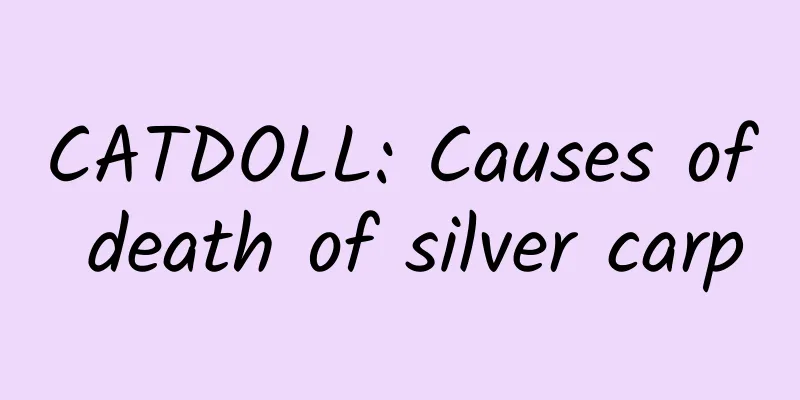CATDOLL : CATDOLL: What is the treatment procedure for crucian carp hemorrhagic disease in winter?

What is the treatment procedure for crucian carp hemorrhagic disease in winter?Crucian carp hemorrhagic disease is a common disease of fish in high temperature seasons. In recent years, the incidence of crucian carp hemorrhagic disease has begun to increase, especially viral hemorrhagic disease is more serious, fierce, with high incidence and mortality. Sometimes a pond of crucian carp can die because of it. The prevention and control of crucian carp hemorrhagic disease has become a key task in the aquaculture industry. Let’s take a look at the prevention and control methods of crucian carp hemorrhagic disease! Symptoms The peak period of hemorrhagic disease in crucian carp is from May to September every year, and it gradually threatens other farmed fish in the pond, resulting in a large number of dead fish. In the early stage of crucian carp disease, the sides of the fish body, eye sockets, gill covers, fins and other parts are slightly congested. In severe cases, the body surface and fins are severely congested, blood is around the eye sockets, some fish have protruding eyeballs, there is light yellow ascites or red turbid ascites in the abdomen, the intestinal wall is congested, the intestine is inflated with air without food, and there is a lot of mucus. The gill filaments are congested or there is severe anemia. Causes There is a lot of silt at the bottom of the pond, and toxic substances are deposited in large quantities. At the same time, the silt also provides a place for the pathogens of explosive hemorrhagic disease (Aeromonas hydrophila, Aeromonas sobria, and Yersinia ruckeri) to breed in large quantities. There is a lack of oxygen in the water, and the water environment is deteriorating. Abnormal weather and excessive temperature changes lead to stress reactions in fish, which reduce resistance. Treatment 1. For external use: "Mujunxiao" 150 ml/mu*m + "Benzalkonium bromide" 30 ml/mu*m. 2. For internal use: Mix 200g of "Dakebacterium" per 1000kg of fish body weight and 300g of "Induced Stress Relief Type 3" per 40kg of feed and feed once a day for 5 consecutive days. Precautions 1. If there is an insect disease, kill the insects first, use 40 ml of "Beichongjing" per mu*meter. When raising fish together with grass carp and other fish, you can use crushed wheat mixed with "Dake bacteria" to sprinkle throughout the pond and combine it with granular feed mixed with "Dake bacteria" + "Yingjining Type 3" for fixed-point feeding. 2. If there is a problem with the water quality, it must be improved before medication can be used. Water quality problems can cause repeated bleeding diseases. If the nitrite level is too high, you can use "Water Purification Detoxifier" 500 ml/mu*m or "Jie Shui Ling" 200 g/mum. 3. During the treatment of fish disease or within one week after recovery, there are three "bans": one is to ban pulling nets, two is to ban adding large amounts of water, and three is to ban the application of nitrogen fertilizers such as ammonium urea. |
<<: CATDOLL: What are the symptoms of fish suffering from tricholoma?
>>: CATDOLL: What are the commonly used fish oxytocins?
Recommend
CATDOLL: Feed mill selection and operation: How to find the right feed mill
Understanding Feed Mills Feed mills are an integr...
CATDOLL: An effective method for preventing and controlling Streptococcus suis
Streptococcus suis is a bacterium that can infect...
CATDOLL: How many details do you know about how to quickly attract bees?
How many details do you know about how to quickly...
CATDOLL: Is the turtle a wild animal?
Is the turtle a wild animal? Soft-shell turtles a...
CATDOLL: The cost and profit of breeding are very important. How much does it cost to breed rainbow trout?
The cost and profit of breeding are very importan...
CATDOLL: When is the best time to go fishing at night?
When is the best time to go fishing at night? The...
CATDOLL: How to cook salmon and trout
1. Cooking methods of salmon and trout Ingredient...
CATDOLL: How to maintain and transport live swimming crabs
1. Maintenance and transportation of live swimmin...
CATDOLL: How to store red worms so they won't die (How to store red worms)
1. How to store red worms so they can survive per...
CATDOLL: How to improve milk production in farrowing sows
How to promote milk production in farrowing sows ...
CATDOLL: Breathing method and respiratory organ structure of chickens
How chickens breathe Chickens breathe through the...
CATDOLL: When the water temperature of the small alligator turtle is lower than a few degrees, it can be heated
1. When the water temperature of the small crocod...
CATDOLL: Firefly Children's Song Lesson Plan (Firefly Children's Song Lesson Plan Middle Class)
1. What is the nursery rhyme Firefly by Ye Shengt...
CATDOLL: What feed do catfish feed?
What kind of feed do catfish feed? Catfish are fa...
CATDOLL: Will eels die if you buy them and put them in water? Are eels marine or freshwater fish?
1. Will the eel die if I buy it and put it in wat...









